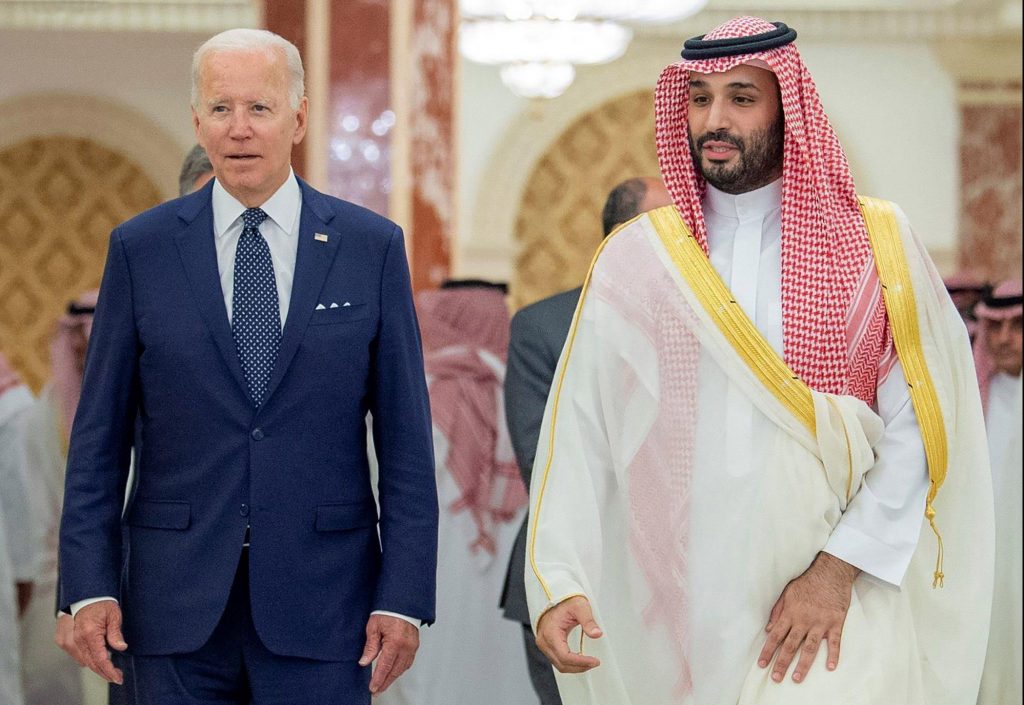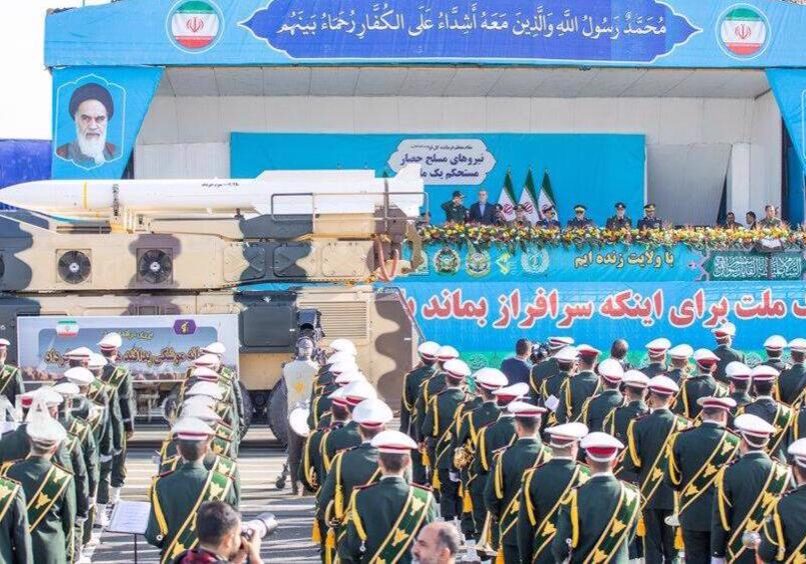Australia/Israel Review
A Middle Eastern NATO?
Aug 1, 2022 | Henrique Cymerman

The Middle East is experiencing a geostrategic earthquake, and its epicentre is in Saudi Arabia. This seismic shift is leading to the creation of a military alliance between countries that, at least technically, are still enemies.
The political and commercial contacts between Israel and the six Gulf Cooperation Council countries, led by Saudi Arabia, stopped being a secret in August 2020 when the dramatic signing of the Abraham Accords between Israel, the United Arab Emirates (UAE) and Bahrain took place. Later, Morocco and Sudan joined the framework.
Now, however, the new alliance is on the cusp of evolving into a regional NATO-type system, with states cooperating under an all-for-one and one-for-all logic. There has been a series of recent reports of regular meetings between military chiefs from Israel, Saudi Arabia, the UAE and Jordan, as well as ongoing discussions about joint defence agreements on missile and drone attacks from Iran or its proxies.
The publicising of joint Israeli-Emirati air force drills employing F-15 and F-16 fighter jets flying side by side would have been the stuff of science fiction just a few years ago. Today, it is a concrete reality.
During recent trips to the Gulf cities of Jeddah, Abu Dhabi and Doha, I heard explanations of this shift that cast light on recent developments. The Iranian threat – both nuclear and conventional – is the glue that binds together this unique coalition.
According to senior military officials, as early as 1973, after the Yom Kippur War, the Arab powers understood that there was no military option against Israel. A former Saudi intelligence chief explained this reasoning to me in detail, saying, “We surprised you on your Day of Atonement. You started the war on your knees, but in the end, you won it. And now Israel is much stronger; it is the greatest power between Indonesia and Gibraltar.”
The rulers of Abu Dhabi, the capital city-state of the UAE, do not hide their dream of turning the Israeli “startup nation” into a “startup region”.
“What we are looking for is not to buy and sell like in a bazaar, but to do joint ventures,” a prominent Emirati businessman told me. According to him, for the UAE, peace with Israel is a strategic bet on the future.
Many secret and private flights have occurred in recent years between Israel and Saudi Arabia. Former Israeli Prime Minister Binyamin Netanyahu and heads of the Mossad have reportedly made such journeys. Even a few weeks ago, a private jet with prominent Israeli businessmen and women was reported to have done so as well. All of them first landed in Jordan for a few minutes so they could not be tracked by any app and no questions would be raised. Then they continued on to Saudi Arabia.
In his first tour of the Middle East as US president in mid-July, Joe Biden, who ultimately understood the extraordinary potential of the Abraham Accords achieved by the previous Republican administration, decided that Air Force One would be the first plane to fly directly from Tel Aviv in Israel to Jeddah in Saudi Arabia, where a summit was scheduled to take place under the leadership of the Saudi kingdom.
Some say that Crown Prince Mohammed Bin Salman (MBS), the strong man of Saudi Arabia, is carrying out a revolution, and if his grandfather and some of his uncles saw it, they would roll over in their graves.
Many of the internal Saudi dynamics that enable this change are tied to a demographic factor that is very noticeable on the streets of Jeddah, Riyadh and the other Gulf capitals: 70% of the population is under 30 years of age. And for most of them, the 20th-century wars between Israel and the Arabs are as ancient and irrelevant as the wars of the Romans.
The Saudis have removed all antisemitic references from their school curriculum, and even the Secretary General of the Muslim World League Mohammed al-Issa made it a point to visit Auschwitz and maintain close relations with rabbis from Israel and around the world. His critics call him “the Zionist Imam”. Recently, he was chosen by the Saudi authorities to deliver the main sermon for the festival of Eid al-Adha.
MBS, together with his Abu Dhabi mentor and new Emirati President Mohammed Bin Zayed (MBZ), Egyptian President Abdel Fattah el-Sisi and Israeli Prime Minister Yair Lapid, are now betting on Biden’s help to push the Abraham Accords into a new phase.
The American President is seeking to reach an agreement that will be a win-win for the four countries. According to this arrangement, Saudi Arabia will grant Israel complete use of its airspace for all Israeli and foreign airlines operating out of Israel, effectively shortening all flights from Tel Aviv to many Asian capitals and Australia.
Saudi Arabia will receive approval from Israel for the transfer of two strategic Egyptian-controlled islands in the Red Sea – Sanafir and Tiran, off the coast of the Sinai Peninsula – to Saudi hands. The need for Israel’s approval of this is stipulated by the 1979 Egypt-Israel peace treaty.
Cairo will be financially rewarded by Riyadh, and this will pump plenty of oxygen into the very poor and fragile Egyptian economy.
Finally, the US will receive an increase in oil production from Saudi Arabia, which is necessary to replace the black gold lost by the West as a result of the Russian invasion of Ukraine.
Biden, who throughout his political career has been one of the champions of the 80-year-old strategic alliance between the United States and Israel, also visited eastern Jerusalem and Bethlehem to remind the region that the Palestinian issue remains pending. The Palestinians do not hide their concerns that they have been relegated to the sidelines in world politics by a new cold war, the global energy crisis and the ongoing normalisation process between Israel and a growing number of Arab and non-Arab Muslim countries.
It is said that what happens in Vegas, stays in Vegas. Recent events prove once again that what happens in the Middle East does not stay in the Middle East. And, although American presidents want to leave the region, the Middle East will pursue them wherever they go.
Henrique Cymerman is a publishing expert at the MirYam Institute. He has covered current affairs in the Middle East for over 30 years and has been nominated “Comendador,” a title of nobility, by the King of Spain and the President of Portugal. © Jewish News Syndicate (JNS.org), reprinted by permission, all rights reserved.
Tags: Gulf states, Israel, Middle East, Saudi Arabia






